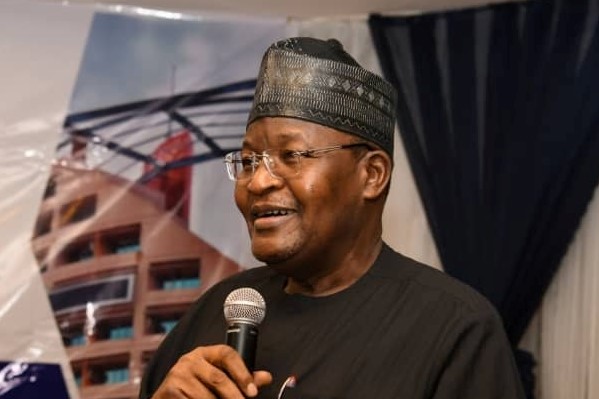Having successfully piloted the affairs of the West Africa Telecommunications Regulators Assembly (WATRA) as chairman in the last one year, Nigeria has handed over the mantle of leadership of the Assembly to the Republic of Guinea.
Prof. Umar Danbatta, the Executive Vice Chairman (EVC) of the Nigerian Communications Commission (NCC), who served Nigeria’s tenure as the Chief Executive Officer of Nigeria’s national telecommunications regulatory authority, handed over to the newly elected Chairman of the Assembly, Sekou Oumar Barry, of Guinea.
The handover ceremony was one of the major highlights of the recently-concluded 19th Annual General Meeting (AGM) of WATRA which took place in Conakry, Republic of Guinea. The AGM equally approved WATRA’s new Strategic Management Plan (SMP) 2022-2024.
Barry, the new chairman, who will preside over the affairs of the Executive Council of WATRA for the next one year, is the Director General of the Telecommunication and Posts Regulatory Authority (ARPT) of the Republic of Guinea. The Assembly also elected the representatives of Mali and Sierra-Leone as 1st and 2nd Vice Chairman respectively.
In his address at the event, Danbatta acknowledged the important role WATRA has been playing in creating policy, legal and regulatory frameworks for Information and Communication Technology (ICT) in the sub-region since the mid-1990s and commended the synergy among member states, which he noted has continued to provide an economic defense for member countries against global shocks, especially in the context of the COVID-19 pandemic.
In Nigeria, Danbatta said ICT currently contributes 17 per cent of the country’s Gross Domestic Product (GDP) with ambitious target of 20 per cent contribution over the next three years, stating that if one big regional market in which ICT policies and regulations are aligned is created, WATRA members can drive ICT investment and growth faster in their respective countries and collectively in the sub-region.
Danbatta recalled that he had worked closely with the Executive Secretary of WATRA, Aliu Aboki, and his team in the last 12 months to achieve a lot in the re-organisation of WATRA’s internal governance and processes to make them more efficient and transparent. The EVC, thus, thanked the Executive Secretary and his team for the energy with which they had pursued the re-positioning task just as he commended the Executive Committee for the clarity of purpose with which they have spelt out these priorities.
Danbatta said some of his achievements as WATRA chairman, include the delivery of draft four-year strategic plan in line with 18th AGM resolution, partial payment of long-outstanding membership dues by some member states after long periods of inactivity, deployment of the new WATRA automated Asset Management System, successful organization of various high-quality capacity building programs for members, optimization of WATRA accounting, finance, and budgeting process, as well as institution of procedures for improved accountability, marked by weekly financial dashboard.
In his acceptance speech, Barry, who thanked Danbatta for making giant strides in the last 12 months, promised to work with the Executive Committee team and the Management Team to consolidate the achievements of the Assembly, and to ensure greater success of the Assembly for the future.
The 19th AGM was attended by the following14 of the 16 WATRA member states: Togo, Sierra Leone, Senegal, Nigeria, Niger Republic, Mauritania, Mali, Guinea Bissau, Republic of Guinea, The Gambia, Cote d’Ivoire, Cape Verde, Burkina Faso and Benin Republic. Ghana and Liberia were absent at the meeting.









